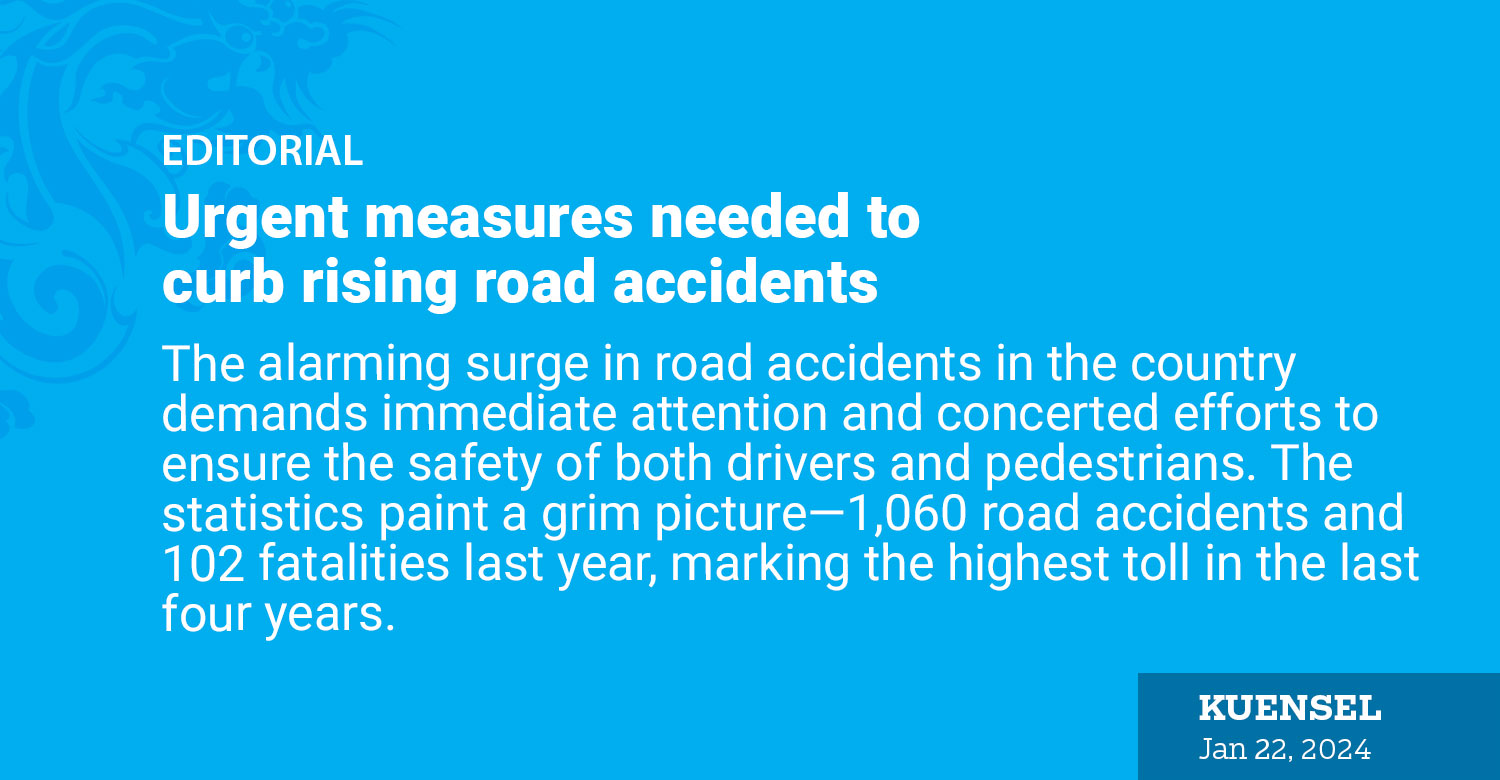The alarming surge in road accidents in the country demands immediate attention and concerted efforts to ensure the safety of both drivers and pedestrians. The statistics paint a grim picture—1,060 road accidents and 102 fatalities last year, marking the highest toll in the last four years. The menace of speeding, driving under the influence, unlicensed driving, and lack of vehicle control persists, underscoring the urgent need for comprehensive measures to curb this escalating crisis.
In the annals of road safety, 2023 stands out as a year marred by recklessness and disregard for traffic laws. The police recorded a staggering 240 cases of drivers losing control of their vehicles, 109 cases of drink driving, and 92 cases of unlicensed driving. Thimphu, the capital city, bore the brunt with 205 reported accidents, closely followed by Chukha with 161 cases. These figures are not just statistical entries; they represent lives lost, families shattered, and a collective failure to ensure safe roads for all.
To address this pressing issue, the police and the Bhutan Construction and Transport Authority (BCTA) have taken commendable steps, including heightened vigilance and the introduction of nationwide drug tests for professional driving licence holders (PDL). The BCTA’s annual report for 2022-23 reveals that approximately 1,320 individuals underwent drug tests, a move aimed at promoting accountability and safety in the transportation sector.
However, the battle against road accidents requires a multi-faceted approach that goes beyond drug testing. It necessitates a paradigm shift in how road safety is perceived and practiced by both road users and the general public. Tackling the root causes of accidents requires a comprehensive public awareness campaign. The government, in collaboration with media outlets and community organisations, should launch educational initiatives that emphasise responsible driving behaviour. These campaigns should not only highlight the consequences of reckless driving but also promote the importance of adhering to traffic rules and regulations. Real-life stories, testimonials, and visuals can be powerful tools to drive the message home.
Simultaneously, incorporating road safety education into the school curriculum is essential. By instilling the principles of safe driving from an early age, we can cultivate a culture of responsible road behaviour among future generations. Practical demonstrations, interactive workshops, and engagement with law enforcement officers can provide students with valuable insights into the importance of road safety.
Law enforcement agencies must continue to ramp up their efforts to curb reckless driving. Regular checkpoints, increased patrols, and strict enforcement of speed limits can act as deterrents for those tempted to violate traffic laws. Visible consequences, such as fines and licence suspensions, should be consistently applied to reinforce the gravity of irresponsible driving behaviour.
We stand at a crossroads where decisive actions can reverse the disheartening trend of rising road accidents. It is incumbent upon the government, law enforcement agencies, civic organisations, and the public at large to collaborate in building a safer road environment.


